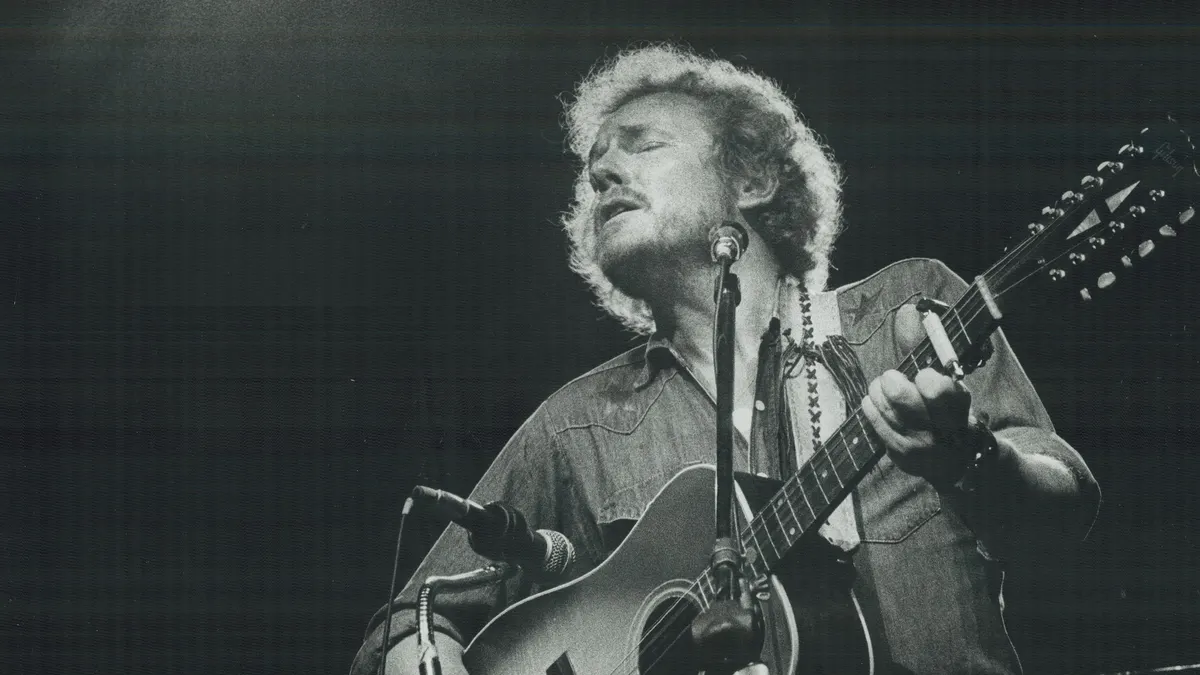
Sundown: A Haunting Melody of Jealousy and the Deepening Shadows of Love’s Unsettled Heart
There are songs that merely mark a moment in time, and then there are those that etch themselves into the very fabric of our being, becoming companions to our most profound and sometimes uncomfortable reflections. Gordon Lightfoot’s iconic “Sundown” is undeniably of the latter kind. Released in the spring of 1974 as the title track from his album “Sundown”, this masterful composition didn’t just climb the charts; it burrowed into the collective consciousness, painting a stark, unforgettable portrait of suspicion and the gnawing anxieties that can plague a love affair. It was a commercial triumph, soaring to the coveted number one spot on the Billboard Hot 100 chart in the United States, a feat it also achieved on the Cash Box Top 100 and in his native Canada. Its reach extended across the Atlantic, peaking at a respectable number 13 on the UK Singles Chart, solidifying its place as one of Lightfoot’s most universally recognized and impactful works.
But beyond its impressive chart performance lies a deeply personal and often unsettling narrative. “Sundown” is a raw, visceral exploration of jealousy and possessiveness, born from the turbulent currents of Lightfoot’s own life. While he rarely named names directly, it is widely understood that the song was a direct outpouring of his frustrations and paranoia during a particularly tumultuous relationship. As the story goes, the inspiration struck him during a period of intense personal turmoil, likely while he was grappling with the fidelity of a partner. The lyrics are a window into a man consumed by suspicion, haunted by the imagined transgressions of his lover as day gives way to night. It’s a song that doesn’t just tell a story; it embodies a feeling – that gut-wrenching dread that descends when trust falters and the mind races with dark possibilities.
The very title, “Sundown”, is a brilliant metaphor for this emotional descent. Sundown isn’t just the end of the day; it’s the twilight zone where shadows lengthen, anxieties heighten, and the unknown takes on a more ominous hue. For the narrator, the approaching darkness signifies not just the close of day, but the creeping uncertainty about his lover’s whereabouts and loyalty. “I can see her lying back and laughing at me,” he laments, a line that perfectly encapsulates the torment of a mind conjuring images of betrayal. It speaks to a universal human vulnerability: the fear of being made a fool, of loving someone who might be laughing at your expense behind your back. This isn’t just about a specific affair; it’s about the fragility of trust and the often-unseen battles waged within the confines of a relationship.
For those of us who came of age with Lightfoot’s melodies as the soundtrack to our lives, “Sundown” resonates with a particular, poignant familiarity. We remember the distinct, slightly melancholic guitar riff that opens the song, instantly setting the mood for a narrative tinged with unease. It’s a sound that evokes the quiet desperation of a man pacing the floor, waiting, wondering. The lyrics, delivered in Lightfoot’s rich, resonant baritone, are not just words; they are confessions. “Sometimes I think it’s a shame,” he sings, “when I get feeling better when I’m feeling no pain.” This line, so deceptively simple, speaks volumes about the self-destructive nature of emotional pain, where numbing oneself feels like a perverse form of relief. It’s a sentiment many of us, looking back on our own youthful entanglements, can recall with a wince of recognition.
“Sundown” is more than just a hit song; it’s a timeless piece of art that delves into the darker, less romanticized aspects of love. It reminds us that even in the most passionate connections, there can lurk a shadow of doubt, a whisper of jealousy, a fear of abandonment. It’s a song that invites introspection, stirring memories of our own moments of insecurity and the difficult lessons learned about trust, control, and the often-unpredictable nature of the human heart. Lightfoot, with his unparalleled gift for storytelling, didn’t just write a song about a relationship; he bottled the very essence of human vulnerability, creating a classic that continues to evoke strong reflections and resonate deeply with anyone who has ever loved, feared, and wondered in the fading light.